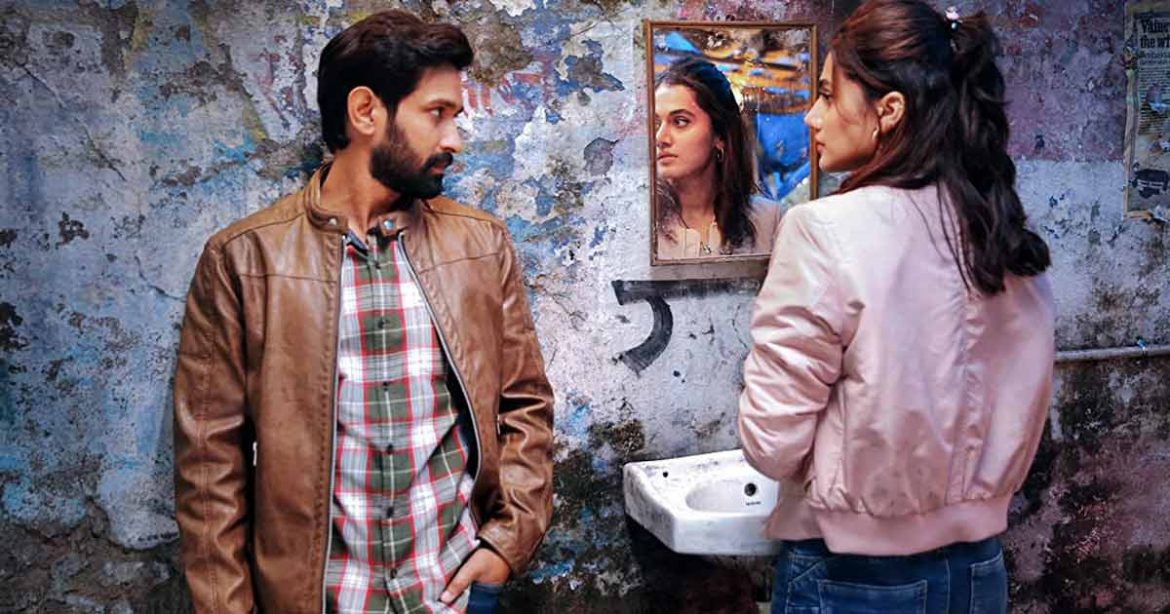Pulp Fiction Daze:
The leading lady of Vinil Mathew’s film Haseen Dillruba (Netflix), fed on a mental diet of lurid crime thrillers, believes that unless there is some shedding of blood in love, it’s not the real thing. Also, true love means tipping into madness.
The sharp-tongued Delhi girl Rani (Taapsee Pannu) works in a beauty parlour as a hobby; she is perfectly willing to settle for an arranged marriage and domesticity, with Rishu (Vikrant Massey), from small town Jwalapur, who is clearly incompatible. Maybe because she is 28 and ‘maanglik’? (These details are helpfully provided!) Desperate to wed she may be, but she proceeds to humiliate Rishu, who, of course, falls in love with her. Her parents, meanwhile, pretend to his parents that all the delicacies served have been cooked by Rani, the cushion covers embroidered by her, and that she is homely and docile. In reality, she cannot even make a cup of tea and is consistently rude to her mother-in-law. If there is any comment here on the idiocies of arranged marriage, it does not come through.
Rani is asked much later by the disgruntled husband what she had been looking for in a man and she spouts some pulp fiction nonsense (though her reading is limited to one crime writer), to which Rishu comments that she wants six men in one, and a simple engineer is obviously not up to those impossible standards.
According to the screenwriter Kanika Dhillon, a badly-behaved, inconsiderate Rani is the ‘modern’ woman, who does not accept the ‘homely and docile’ option. However, she does turn down the proposal, nor do anything to fit into the in-laws’ household; but she loudly complains about her inadequate sex life to her mother and aunt. Rishu is understandably miffed and stops speaking to her.
This Jwalapur ki Charulata falls for Rishu’s cousin Neel (Harshwardhan Rane), and jumps into bed with him, because he reads the same terrible writer and has a more adventurous career as a river rafting guide. The whole mohalla knows about the affair, except clueless Rishu, not even wondering why his wife’s domestic skills suddenly develop and the vegetarian Rani cooks mutton. When she confesses, he asks her to leave, but the taunts of the neighbourhood boys make her stay on. The woman who had a smart-alecky quip for every occasion, is reduced to weeping, suffering guilt, not even protesting Rishu’s attempts to injure/kill her, because this violence is her idea of love.
All this she tells a skeptical cop (Aditya Shrivastav), when she is accused of murdering her husband in a gas explosion. The other cops in the station stand around gawking at her in awe, as if she were a film star and not a garden variety criminal.
It’s quite obvious to the viewer what the so-called suspense will turn out to be, but this ridiculous ‘love story’ goes on for 135 minutes, with Taapsee Pannu trying hard to make Rani sympathetic, if not likable, and Vikrant Massey looking either sheepish or sulky. This Kasauli Ka Keher (the fictional bestselling book everybody reads) kind of plot is quite regressive; and replacing the meek heroine of old romantic movies with an unpleasant one is not doing feminism any favours.

